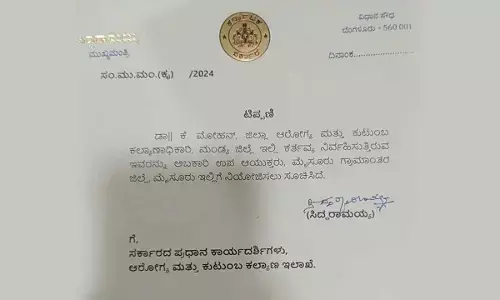Medical coding, an emerging career
Some time back, I had an interesting career query from a young, bright student of class XII who opted for Physics, Chemistry, Biology (PCB), as he came from a family of doctor's, and surprisingly didn't want to be doctor.
Some time back, I had an interesting career query from a young, bright student of class XII who opted for Physics, Chemistry, Biology (PCB), as he came from a family of doctor's, and surprisingly didn't want to be doctor. He was not aware of any upcoming or new age careers in PCB other than Medical. While exploring other options for a career he came across "Medical Coding" which sounded appealing to him. He had heard about it once, but he had a very limited knowledge about this field. So many questions popped up into his mind, like what is Medical Coding? Is it same as Medical Billing? Are there courses available in this area? What qualifications are required to be a Medical Coder? So I decided to write this article which throws light on this promising field.
Nowadays there is an extraordinary rise in the career opportunities available in the different fields. A lot of new opportunities are arising in the Indian job market. Medical coding is an upcoming in-demand field in the stream of Healthcare Administration. Among the various upcoming career opportunities; Medical Coding is also a very good career option for the youth of our country. With the growth of the various sectors, healthcare sector is also witnessing a sudden growth in our country. This sector is generating millions of jobs not only in India and United States but also in other developed and developing countries.
CAREER OVERVIEW- What is Medical Coding all about?
In simple terms, Medical coding is the translation of medical reports into a short code used within the healthcare industry. This helps summarize otherwise cumbersome medical reports into efficient, data-friendly codes. These code sets help coders document the condition of a patient and describe the medical procedure performed on that patient in response to their condition.It is an important process in medical billing and plays a vital role in overall reimbursement cycle.
WHY IS MEDICAL CODING IMPORTANT?
Medical billing and coding employees are essential and crucial for success of healthcare facilities and providers. They rely on the expertise of medical coding and billing individuals to assist in billing of services provided to their patients and processing of claims. The diagnoses and procedure codes are taken from medical record documentation, such as transcription of physician's notes, laboratory and radiologic results, etc. Medical coding professionals help ensure the codes are applied correctly during the medical billing process, which includes abstracting the information from documentation, assigning the appropriate codes, and creating a claim to be paid by insurance carriers.
IS MEDICAL CODING THE SAME AS MEDICAL BILLING?
The answer is No. Medical coding and medical billing are two separate processes. The main task of a medical coder is to review clinical statements and assign standard codes. Medical billers, on the other hand, process and follow up on claims sent to health insurance companies for reimbursement of services rendered by a healthcare provider. The medical coder and medical biller may be the same person or may work with each other to ensure invoices are paid properly. To help promote a smooth coding and billing process, the coder checks the patient's medical record (i.e., the transcription of the doctor's notes, ordered laboratory tests, requested imaging studies, and other sources) to verify the work that was done. Both works together to avoid insurance payment denials.
WHAT MEDICAL CODERS DO?
Medical coders play a vital role in the connection between health care providers, patients and insurance companies. As a coder, you'll need to read patient charts to determine medical history, including diagnoses and treatments given. Based on these charts, you'll use a set of established medical codes in order to transcribe patient history into a type of "shorthand" that will be used by both health care providers and insurance companies.
From clinics to hospitals to physicians' offices, medical coders use medical codes to document patient diagnosis and treatments. Specifically, their duties include:
a. Reading and analyzing patient records
b. Determining the correct codes for patient records
c. Using codes to bill insurance providers
d. Interacting with physicians and assistants to ensure accuracy
e. Keeping track of patient data over multiple visits
f. Managing detailed, specifically-coded information













